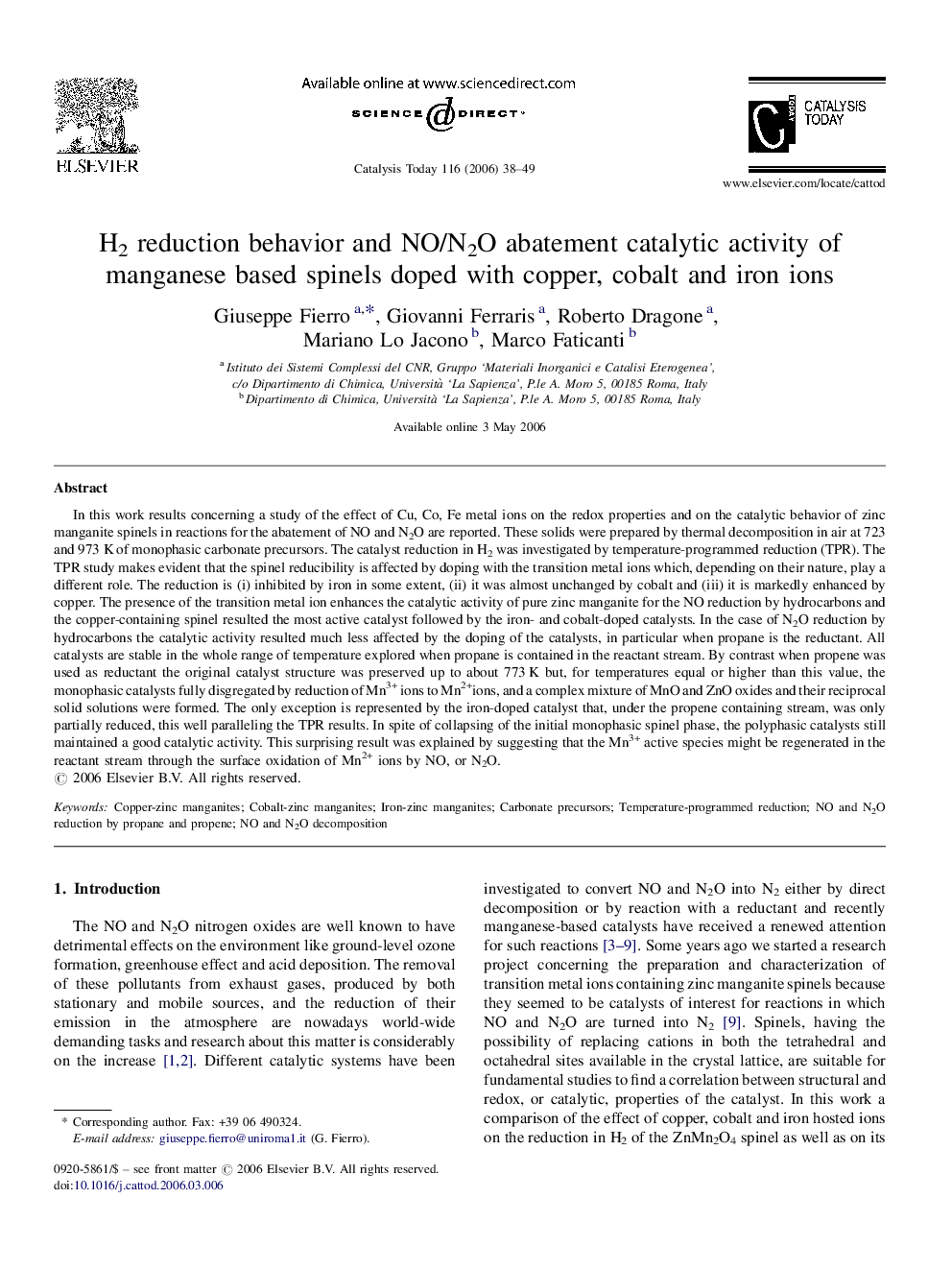| کد مقاله | کد نشریه | سال انتشار | مقاله انگلیسی | نسخه تمام متن |
|---|---|---|---|---|
| 58675 | 47162 | 2006 | 12 صفحه PDF | دانلود رایگان |

In this work results concerning a study of the effect of Cu, Co, Fe metal ions on the redox properties and on the catalytic behavior of zinc manganite spinels in reactions for the abatement of NO and N2O are reported. These solids were prepared by thermal decomposition in air at 723 and 973 K of monophasic carbonate precursors. The catalyst reduction in H2 was investigated by temperature-programmed reduction (TPR). The TPR study makes evident that the spinel reducibility is affected by doping with the transition metal ions which, depending on their nature, play a different role. The reduction is (i) inhibited by iron in some extent, (ii) it was almost unchanged by cobalt and (iii) it is markedly enhanced by copper. The presence of the transition metal ion enhances the catalytic activity of pure zinc manganite for the NO reduction by hydrocarbons and the copper-containing spinel resulted the most active catalyst followed by the iron- and cobalt-doped catalysts. In the case of N2O reduction by hydrocarbons the catalytic activity resulted much less affected by the doping of the catalysts, in particular when propane is the reductant. All catalysts are stable in the whole range of temperature explored when propane is contained in the reactant stream. By contrast when propene was used as reductant the original catalyst structure was preserved up to about 773 K but, for temperatures equal or higher than this value, the monophasic catalysts fully disgregated by reduction of Mn3+ ions to Mn2+ions, and a complex mixture of MnO and ZnO oxides and their reciprocal solid solutions were formed. The only exception is represented by the iron-doped catalyst that, under the propene containing stream, was only partially reduced, this well paralleling the TPR results. In spite of collapsing of the initial monophasic spinel phase, the polyphasic catalysts still maintained a good catalytic activity. This surprising result was explained by suggesting that the Mn3+ active species might be regenerated in the reactant stream through the surface oxidation of Mn2+ ions by NO, or N2O.
Journal: Catalysis Today - Volume 116, Issue 1, 30 July 2006, Pages 38–49